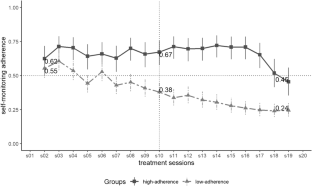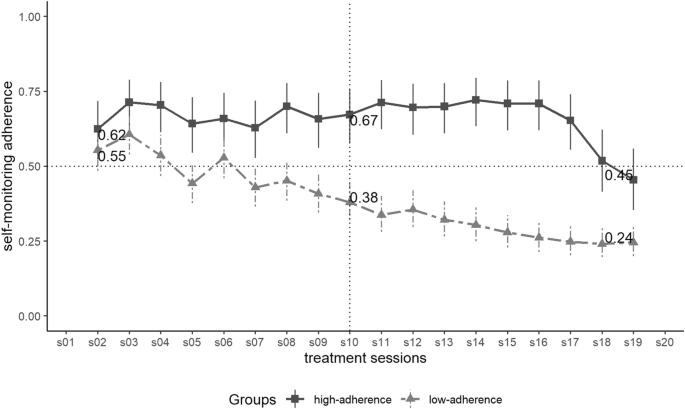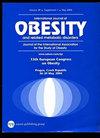Predictors of parent self-monitoring patterns in a family-based behavioral weight loss treatment program
IF 4.2
2区 医学
Q1 ENDOCRINOLOGY & METABOLISM
引用次数: 0
Abstract
Self-monitoring dietary intake is a critical component of family-based intensive health behavior and lifestyle treatment for pediatric obesity, but adherence rates are often low. This study identifies predictors of parent self-monitoring rates during treatment. A secondary analysis of parent self-monitoring data from a randomized controlled trial involving 150 parent-child dyads. Patterns of self-monitoring were identified using a latent class mixed model approach. Logistic regression analyses evaluated predictors of self-monitoring patterns. Latent class models identified two trajectory groups: a high consistent self-monitoring group and a low-decreasing self-monitoring group. When compared to parents in the low group, parents in the high group lost more weight throughout treatment. Children in the high group had a similar trajectory for weight loss; however, the groups were not statistically different. Higher levels of family chaos and poorer family problem-solving skills were associated with higher odds of being in the low group. This study identified two patterns of rates of parent self-monitoring, which were associated with parent weight loss and were differentiated by family chaos and poor problem-solving. These findings suggest that families with high levels of chaos and poor problem-solving could benefit from early intervention to improve outcomes in pediatric obesity treatment programs. Clinicaltrials.gov Identifier: NCT01197443.


家庭行为减肥治疗计划中家长自我监控模式的预测因素。
目的:自我监控饮食摄入量是以家庭为基础的儿科肥胖症强化健康行为和生活方式治疗的重要组成部分,但坚持率往往很低。本研究确定了治疗期间家长自我监测率的预测因素:方法:对来自一项随机对照试验的家长自我监控数据进行二次分析,该试验涉及 150 个亲子二人组。采用潜类混合模型法确定自我监控模式。逻辑回归分析评估了自我监控模式的预测因素:潜类模型确定了两个轨迹组:高一致性自我监控组和低递减自我监控组。与低自我监控组的家长相比,高自我监控组的家长在整个治疗过程中体重减轻得更多。高水平组儿童的体重减轻轨迹与低水平组相似,但两组在统计学上没有差异。家庭混乱程度越高、家庭解决问题的能力越差,则属于低度组的几率越高:本研究发现了家长自我监控率的两种模式,这两种模式与家长体重减轻有关,并因家庭混乱和解决问题的能力较差而有所区别。这些研究结果表明,混乱程度高和问题解决能力差的家庭可以从早期干预中受益,从而改善儿科肥胖症治疗计划的效果:试验注册:Clinicaltrials.gov Identifier:试验注册:Clinicaltrials.gov Identifier:NCT01197443。
本文章由计算机程序翻译,如有差异,请以英文原文为准。
求助全文
约1分钟内获得全文
求助全文
来源期刊

International Journal of Obesity
医学-内分泌学与代谢
CiteScore
10.00
自引率
2.00%
发文量
221
审稿时长
3 months
期刊介绍:
The International Journal of Obesity is a multi-disciplinary forum for research describing basic, clinical and applied studies in biochemistry, physiology, genetics and nutrition, molecular, metabolic, psychological and epidemiological aspects of obesity and related disorders.
We publish a range of content types including original research articles, technical reports, reviews, correspondence and brief communications that elaborate on significant advances in the field and cover topical issues.
 求助内容:
求助内容: 应助结果提醒方式:
应助结果提醒方式:


